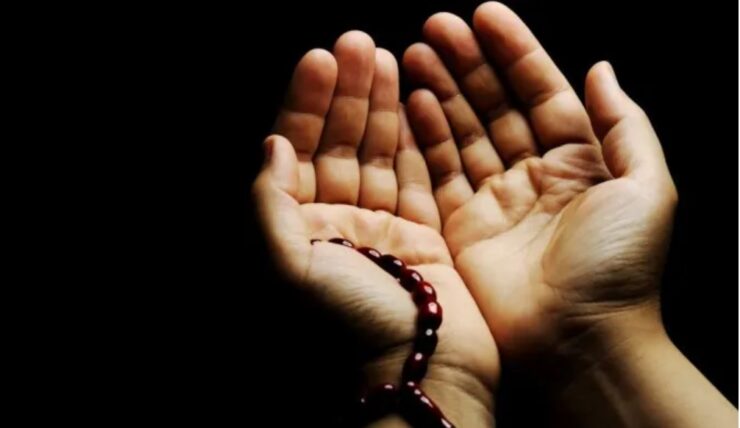By A. Zeynep Donmez – Ozlem Ata Translated from Turkish by Yilmaz Kaso
A chapter from the book ‘Friday of the Youth” Sydney, AUSTRALIA
SUPPLICATION (DUA)
بِسْمِ اللَّهِ ٱلرَّحْمـٰنِ ٱلرَّحِيمِ
وَقَالَ رَبُّكُـمْ ٱدْعُونِيۤ أَسْتَجِبْ لَكُمْ إِنَّ ٱلَّذِينَ يَسْتَكْبِرُونَ عَنْ عِبَادَتِى سَيَدْخُلُونَ جَهَنَّمَ دَاخِرِينَ
“Your Master has said, ‘Call upon Me, and I will respond to your prayers.’ But those who are too arrogant to worship Me will certainly enter hell, in disgrace.” (Ghafir 40:60)
“ادْعُوا اللَّهَ وَأَنْتُمْ مُوقِنُونَ بِالإِجَابَةِ وَاعْلَمُوا أَنَّ اللَّهَ لاَ يَسْتَجِيبُ دُعَاءً مِنْ قَلْبٍ غَافِلٍ لاَهٍ ”
“Call upon God while being certain that it (your supplication) will be responded. And know that God does not respond to a supplication that is made while one’s heart is heedless.” (Jami at-Tirmidhi, Daawat, 66)
Dear youth,
The word ‘dua’, translated as ‘supplication’ is derived from a root that means ‘calling’ or ‘calling out’. The Qur’an explicitly decrees that we must supplicate to nobody but God. We repeat this every time we read Surah Al-Fatihah: “You alone we worship, and You alone we ask for help.”
God values the supplication of His servant. In Surah Al-Furqan 25:77 it is emphasized:
“Why would my Master care for you, if it weren’t for your supplication to Him?”
Supplication is a very valuable blessing for a human being. Supplication is the way of bearing your heart to God. It is telling God about your problems, fears, and sorrows. Supplication is the moment when one feels their own weakness the most but it is also the time when you feel the existence of a Great Power supporting you -that is, the power of Almighty God who is The Most Gracious and The Most Beneficent- so that you can overcome everything. What you need the most at a time when troubles surround you is a source of relief, a hope that your troubles can be solved. Supplication is indeed that hope, saying “No matter how great your troubles are, there is God greater than your troubles”. Supplication is also saying “Don’t worry, take refuge in God and He will show you a solution”. It is the first step in finding a solution as well as the awareness of acknowledging that all solutions would only be possible by God’s approval, permission, and courtesy. In the verse we recited at the beginning, Almighty God stresses the importance of this consciousness and states that He considers supplication as an important part of His servitude. In this verse, supplication is associated with acknowledgment of servitude to God and avoiding arrogance. The hadith which states “The supplication is the essence of worship” also supports this idea. (Jami at-Tirmidhi, Chapters on Supplication, 1)
Dear youth,
Almighty God mentions supplication in many parts of the Qur’an. For example, verses 201 and 202 of Surah al-Baqarah mention two types of people who supplicate. One of them wishes to attain goodness and wealth only in the world, while the other supplicates for goodness both in the world and the Hereafter. God states that those who want worldly things only will see no goodness in the Hereafter. For this reason, we must be careful with what we request from God while supplicating. We must ask for things that will be good for both this world and the Hereafter.
Dear youth,
The supplication in Surah al-Baqarah which includes an appeal for good things in the world and the Hereafter is “Rabbana atina” that we recite in every prayer. The supplication “Rabbanaghfirli” which we recite along with “Rabbana atina” is in the 41st verse of Surah Ibrahim. It means: “Forgive me, Master, and forgive my parents and all the believers on the day when everybody will be reckoned.” With these examples, our Master teaches us how to supplicate. There are many more examples of supplication in the Qur’an. We should learn these supplications together with their meanings, and we should supplicate to God by choosing the one that fits our situation.
Dear youth,
The hadith which we recited at the beginning states: “Call upon God while being certain that it will be responded. And know that God does not respond to a supplication that is made while one’s heart is heedless.” This hadith underlines the points to be considered when supplicating. Similar emphasis was also made in different hadiths such as: “The nearest a servant comes to his Master is when he is prostrating himself, so make supplication therein” (Sahih Muslim, The Book of Prayers, 482). According to this hadith, it would also be appropriate and beneficial for us to supplicate in our own language while prostrating in prayer. We should not doubt that our supplication will be answered. However, we must not forget that we cannot achieve anything by praying only. We can hope that our supplication will be answered after we have done everything we could and supplicated consciously. We should not be impatient in any way. God will respond to our supplication at the most appropriate time and in the most beneficial way for us. For the specific supplications that (we think) are not accepted, we must maintain our belief that this is better for us, because, “In that situation, the only protection is that of God, the Truth. He is the best in rewarding and the best in respect of the final outcome.” (Al-Kahf 18:44)
Thus, we hope that we will be among the saved ones.








Add comment